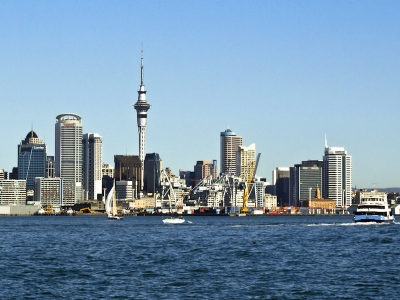
SFM Offshore
no reviews yet
Specialises in:
- Incorporation Services
- Shelf Companies
- Foundations
- Virtual Office
- Company Transfer
- Bank introductions
- Prepaid cards
- Accounting
- Yacht registration
Bank introduction in New Zealand
€1050 EUR
Nominee Director Included Nominee Shareholder Included
Planning to open an Offshore Bank Account for Yourself or your Company ?
- SFM has extensive experience with both private as well as corporate bank account opening in 18 key banking jurisdictions,with over 40 of the world’s leading top tier banks
- Provides maximum confidentiality.
- SFM is recognized as a partner by banks with the highest quality reputationand a long track record of financial excellence. A rigorous application and drafting procedure is applied before a bank has the opportunity to cater its services to SFM’s international clientele
- SFM is partnered with banks that have guaranteed low fee structures, and acustomer focused approach.
What Banking facilities are available?
|
|
New Zealand
New Zealand is an island country in the southwestern part of the Pacific Ocean. The country is split between two main land masses and many small islands. It is considered a remote region of the world, and remained isolated from human colonization longer than any other region, other than the Arctic and Antarctic. The most populous city is Aukland.
Banking in New Zealand
New Zealand has evolved in recent years to become a major offshore financial center, major deposit growth over the last 20 years, sue to banking stability and secrecy. New Yealand has 6 commercial banks, 1 restricted bank, 12 authorized custodians, and 2 licensed money service businesses.
History
Due to its remoteness from the rest of the world, New Zealand was one of the last major landmasses settled by human beings. Other than the native Maori populations, 1642 saw the first Westerners reach New Zealand. These were the Dutch explorer Abel Tasman and his crew. The next Europeans to visit the island were James Cook, who mapped the entire coastline successfully.
Following, many European and North American trading ships visited New Zealand, trading food, metal, tools, and weapons, for timber, food, water and artifacts with the native Maori population. Shortly after, New Zealand was declared a British colony. In 1856 the colony effectively became self-governing, gaining responsibility over all domestic matters other than native policy.
King Edward VII proclaimed New Zealand a dominion within the British Empire in 1907. Furthermore, New Zealand effectively adopted the Statute of Westminster in 1947. This meant that the British parliament could no longer legislate for New Zealand without the consent of New Zealand itself.
Banking Institutions
British Virgin Islands has 25 commercial banks, 17 authorized custodians, and 9 licensed money service businesses. The Reserve Bank regulates banks, insurers and non-bank deposit takers.
Laws and Regulations
As an offshore financial centre, New Zealand enjoys a stable, confidential and high quality banking system, regulated by The Reserve Bank of New Zealand. The Reserve Bank registers and supervises banks. The Bank is also one of three supervisors tasked with ensuring firms meet stability and quality obligations across the board. The territory is not part of the European Union and not directly subject to EU law.
Bank Secrecy
New Zealand is one of the safest places to consider when investing abroad. The country has stable political and economic systems, and very confidential banking standards. There are considerable offshore services and advantages, yet has kept a very positive image worldwide. The assets placed in New Zealand are very strongly protected by New Zealand laws. New Zealand is ranked at 48th position on the Financial Secrecy Index in 2014. New Zealand’s popularity is often ascribed to it being regarded as a very stable and secure centre for depositing assets. Furthermore, due to its secrecy and high quality banking infrastructure, it is growing as a preferred banking region for businesses and individuals worldwide.
Electronic Payments
New Zealand is a member of the Society for Worldwide Interbank Financial Telecommunication (SWIFT). The SWIFT network is the safest and most secure system for financial transactions worldwide.
Banking Facilities
SFM has a relationship with an extensive network of private and major banks in New Zealand. All of the banks we refer our customers to offer a full international banking platform, with multi-currency accounts (£, € & $) as well with online banking and debit/credit cards.
Once your order has been completed, you will be assigned a dedicated account manager that will guide you through the bank account opening procedure. Then, we will carefully select with you a bank from one of our leading partners that perfectly fits your requirements like a tailored suit.
Which documents are needed to open a bank account?
As a general rule the bank asks for a certified copy of the shareholder's and director's passport (beneficial owner), as well as recent proof of residence which, must be less than three months old. If the client goes to the bank in person to open the account, a certified copy of the passport is not required.
We will send you the additional documents necessary for opening the account by email, as an attachment, for you to sign and return to us preferably by special courier ( DHL, FedEx or Chronopost), along with the other documents mentioned above.